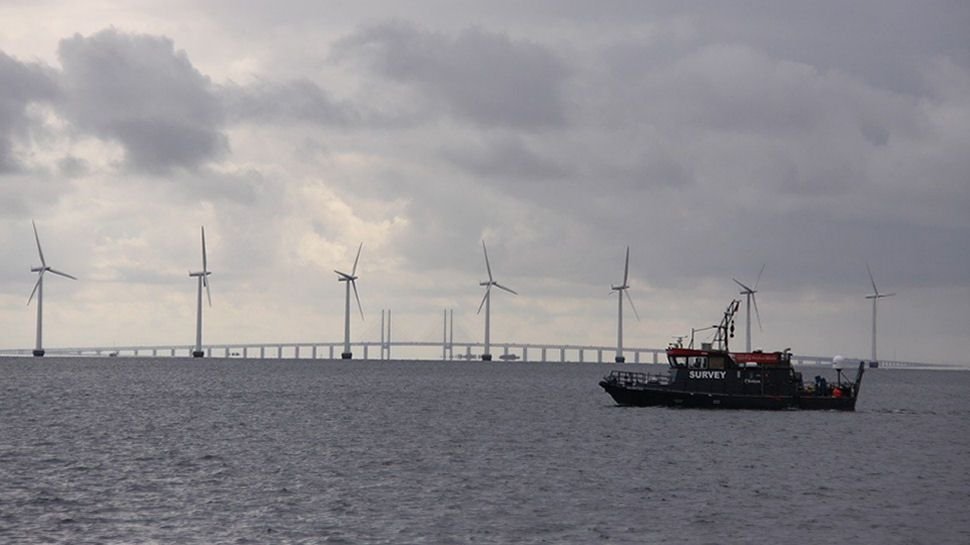

When it comes to industries undergoing large-scale digital transformation, the maritime industry may not be the first to come to mind. However, from the adoption of blockchain technology to advances in offshore wind operations, developments in marine conservation and beyond, remote technology opens up new avenues of maritime work. One of these advances includes the accelerated design and manufacturing of Unmanned Surface Vessels (USVs) that can perform tasks from the ocean surface while being controlled on land from a Remote Operations Center (ROC). . USVs are beginning to replace certain technologies used in the maritime industries, but more interestingly, they are creating possibilities for entirely new ways of working based on automated technology. With a wide range of oceanographic applications, including marine research, monitoring and exploration, USVs can transform the working environment of the industry. These applications can begin to reduce reliance on larger ships, allowing maritime organizations to become more agile.
Greater safety and efficiency
Carrying out remote operations with USVs brings many benefits to the maritime industry, one of the most important being the enormous reduction in risk for maritime personnel. The ability to deploy and manage remote vessels from ROC anywhere in the world means far fewer people have to work in an extreme and potentially dangerous maritime environment. Support critical industry tasks, such as transoceanic cable routing investigations, that are essential to meeting the growing demand for data communications. The introduction of USV allows these tasks to be performed with minimal health and safety risk, and significant operational savings compared to performing the same task with manned vessels. Additionally, USVs provide an extremely efficient mode of data collection, enabling maritime organizations to acquire better analytics for business intelligence, providing deeper insights and therefore better advice to their clients. As USVs help staff transition from offshore to onshore careers, organizations are increasingly better equipped to optimize their teams using cloud computing and a streamlined IT infrastructure. By deploying technology remotely, staff can prioritize complex analytical tasks instead of spending time supporting delivery steps. This leads to another advantage: higher production and speed in disseminating information to customers. A key point to keep in mind is that technology does not replace the need for qualified personnel; rather, it allows them to work more efficiently and in a safer environment. Staff moving from the outside in have a critical role to play in analyzing the data collected by RSUs, gathering information, and making recommendations to clients. USVs and improved ship-to-shore connectivity allow them to do so without spending long periods at sea, exposed to potentially hazardous conditions.Greener technology and sustainable solutions
Along with improving operations, greater sustainability is essential to the future of the marine industry. The UK government's Maritime Roadmap 2050 set an ambitious target of global zero emission ships by 2050, which means organizations need to make big changes to cutting-edge technologies to align with this policy and changes in legislation. which will probably follow. The integration and adoption of USVs over traditional vessels will greatly benefit from the overall environmental impact of shipping and maritime operations. Some USVs have hybrid diesel-electric engines that allow the vessel to operate further offshore for a longer period, while significantly reducing the carbon footprint. More operational USVs will lead to fewer larger and more polluting ships, a huge step forward in improving the long-term sustainability of the marine industry.Large-scale remote operations design
At Fugro, we believe that USVs will play a key role in the future of maritime exploration and operations, and as such, we have partnered with SEA-KIT International, a global provider of high-tech solutions. for the maritime and research industries. Through this partnership, we are helping drive USV development to support increased use of Remotely Operated Vehicles (ROVs) and Autonomous Underwater Vehicles (AUVs) to survey marine assets. Developed with SEA-KIT, our new range of USVs will consume up to 95% less fuel than traditional vessels, thus supporting international ambitions for global zero emissions in the maritime industry. Everyone in the marine industry will greatly benefit from the adoption of remote technology. These changes will enable faster, more efficient and safer maritime operations, operating at a significantly more sustainable scale, and will also accelerate the significant digital transformation of the maritime industry.- Ivar Josselin de Jong, O&G Remote Inspection Market Director and Renewable Energy with Sea-Kit and Electric ROV solution at Fugro.